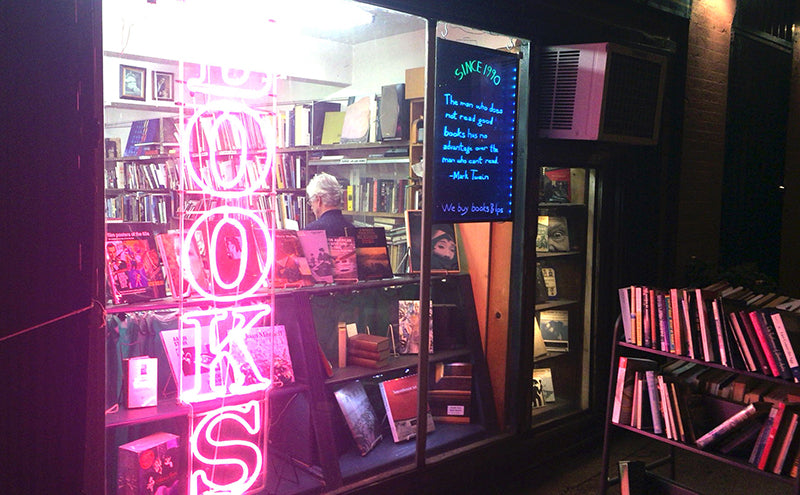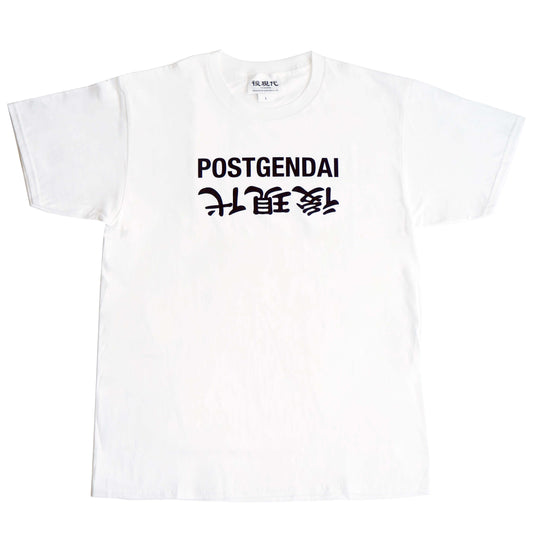
Wayne Conti (Mercer Street Books, NYC)
Share
Mercer Street Books was opened in 1990 and the owner Wayne Conti has been running this bookstore for 30 years. In 2015 we visited there by chance and got some books written by Thomas McGuane and John Maxwell Coetzee. We were fascinated with the unique signboard in front of the entrance. We also liked the owner with glasses and the interesting selection of this store. When we remember NYC we recall this bookstore. “Interestingly enough, Susan Sontag was a customer here, and she told me this was her favorite bookstore,” he said.


Wayne Conti (Mercer Street Books, NYC)
Q1. What did you often think about when you were about 15 years old?
I'd say I mostly thought about the same things that most kids think about at 15. We break from our parents in search of freedom, but we find that without that external structure and support system, we really are on our own. We spend a great deal of our time wanting to get along with the people we like. We want to be accepted, fit in, disappear into the crowd. Replacing one stasis with another.
That being said, I was also trying to be a writer. I'm not sure where that idea came from. I knew what I was writing was no good, but I couldn't figure out what was wrong. Mostly I was copying other writers' writing to the point that my English teacher said I should become a journalist. That never when anywhere, but I did stick to the writing to the point that I moved to Greenwich Village in New York City and I sometimes sell a story, long or short, and I have this bookstore.
I opened the bookstore here because it had already been a bookstore of one kind or another since the 1960s. This iteration opened in 1990 and here I am.
Q3. What was the most impressive thing or moment of your life?
The most impressive moment in my life? I can't remember.
Q4. What is the most unforgettable thing you have ever seen or found?
I was an eye witness to the events of September 11, 2001. It all happened near my apartment.

Q5. What does come to your mind when you hear the word "postmodern"?
When I hear the word postmodern I start to feel tired. I'm a writer and, thus, don't interest myself in criticism. Criticism is very different from, say, fiction writing. I have recently had published a short story that was noted to have modernist/postmodernist components, but the "ism" in it was a product of the character of the character (if I can say that), and not for "form" sake. So, for me, postmodernism is someone else.
Q6. Who is your favorite philosopher, and what is your favorite book written by them?
I don't have a favorite philosopher. I turn to science, specifically neuroscience to understand issues of epistemology and theories of being. Robert D. Hare is a good place to start. I was a classics major, so I translated Plato, but I'm left with the idea that "elenchos" which is to say Socratic cross-questioning is finally bullying. I find many academics to be bullies, and I deal with a lot of them as part of my work. Interestingly, "elenchos" is part of a lawyer's training--cross questioning to win--and an attorney wins when he's the most clever one. Philosophy is aggressive. Science is about what is reproducible, matched with pattern recognition, usually mathematical, mathematics being the language of relations and ratios. Fiction can be like that, too. People are asking if Proust was a neuroscientist. The answer is no, but he was a better observer that Freud.
Q7. Can you give us suggestion of contemporary American writers or Thinkers?
I shy away from contemporary authors because I feel that the writers coming up now are often poorly trained in the craft of writing, or are pretending to be--which is to say populists. That being said, I say good writing is good writing, and in that case I almost don't care what he's saying. Thus I'd say just: browse your local used bookstore and read the first few paragraphs of whatever catches your eye; if you want to go on, that's it. Susan Sontag did that here at this bookstore. Why not?

Photo by Mercer Street Books




